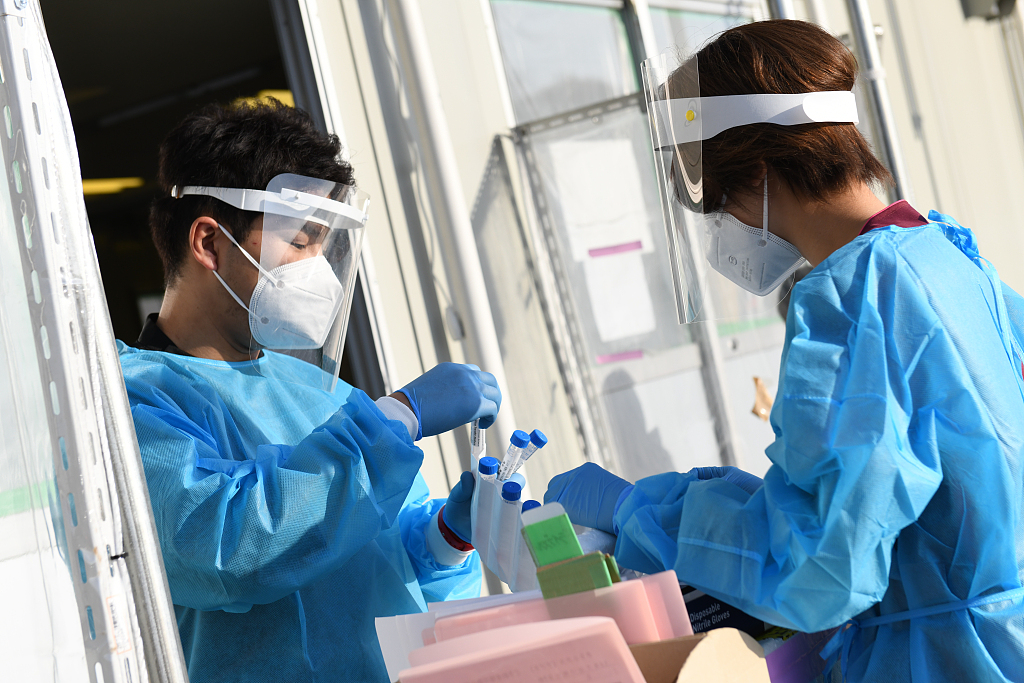
The Tokyo Olympics banner at the Metropolitan Government Building in Tokyo, Japan, January 22, 2021. /CFP
The Tokyo Olympics banner at the Metropolitan Government Building in Tokyo, Japan, January 22, 2021. /CFP
The Japanese government and the Tokyo Olympic and Paralympic Committee have decided to test the saliva of all athletes attending the event on daily basis as part of the COVID-19 protocol, reported Kyodo News on Wednesday.
Saliva testing will be conducted under surveillance, just like doping tests, at a sample collection center located within the athletes' village in Tokyo's Harumi waterfront district to prevent sample switching and other possible fraudulent acts.
Compared with the usual way of inserting a cotton swab deep into the nasal cavity to collect mucus, saliva is safer and easier to collect, according to Kyodo News. It has not been confirmed whether antigen or polymerase chain reaction (PCR) tests will be used to analyze the samples. If one tests positive with saliva, a mucus PCR test will be taken to confirm the result.

Medical crew collect samples for COVID-19 testing in Saitama Prefecture, Japan, December 9, 2020. /CFP
Medical crew collect samples for COVID-19 testing in Saitama Prefecture, Japan, December 9, 2020. /CFP
The testing schedule will be made based on daily competition schedule to make the testing available for athletes anywhere every day. If one has to participate in competition on the day or the following day, he or she may be exempted from the testing.
If an athlete shows symptoms like fever or cough, he or she must undergo PCR testing of nasopharyngeal swab specimens at the clinic in the athletes' village. If the result is positive, the athlete must be quarantined immediately.
Back in February, the organizing committee wrote in the first edition of COVID-19 guidelines for athletes that tests would happen at least once every four days. However, as new variants of the coronavirus are more contagious, stronger policies are needed. The organizing committee has been discussing details with the International Olympic Committee before adding them to the second edition of the playbook.

